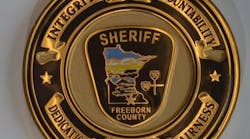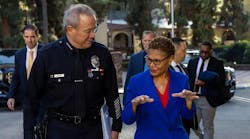Yesterday I was talking with a friend of mine who is a retired FAA investigator and now works for a major airline as a Safety Specialist. He was explaining he had to go investigate a “near miss” where two aircraft were within one hundred feet of one another. “That must’ve given the passengers a thrill!” I said and he explained it was an empty aircraft being ferried at low altitude and the investigation was triggered because the airplanes were within a hundred feet in altitude but not actually one hundred feet apart. The reflex most people would have is “no harm, no foul!” but aviation has so many threat variables it cannot afford to lose the chance to learn from “non-events” as well.
In the end a report will be reviewed and processes, procedures, and training will be changed or reinforced to make sure that “near miss” will make everyone safer in the long run. Now think about the profession of law enforcement. How many tens of thousands of “non-events” do we have every single day? The accident that didn’t happen; the shooting that didn’t occur; the fight prevented without a blow; the would-be injured or dead that calmly turned in their paperwork at the end of the day unscathed? All this occurring without any review, any study, any reflection, and so good training goes unreinforced; good procedures go unproven; luck gets the credit and we often go home without the slightest reflection on a shift that ended up uneventful when the potential for tragedy was everywhere.
Now I am NOT saying go around afraid, paranoid or praying for good luck. Ever notice how cool and collected your pilot seems in the midst of that nasty turbulence that has just ruined the start of your weekend in Vegas? It is the result of training, training and more training, combined with a constant use of rituals and checklists and reports that reinforce those tools. Reports on tragedies and non-tragedies, hits and near misses, and how a pilot did this, an aircraft did that, this failed or that worked, and all the time your pilot is reflecting on how he or she would have handled this or that. Later that pilot will face a crisis in a simulator often based on critical moments from the real world and it is the pilot’s job to make it a non-event… a solvable problem… a win… a “Not Today!” moment.
Some cops do use reflection to improve their odds, learn from the event, and reinforce their winning habits. This last week we have had lots of bad weather in our nation and first responders are always balancing the need to get there right now with their own safety and whether they even get there or not. A friend of mine was responding with lights and siren (Code 3) in a driving rain and suddenly he got that eerie feeling of weightlessness associated with hydroplaning; it is like you’ve become the puck on an air hockey table. Even with his years of experience and EVOC training he suddenly changed several lanes before he was able to get the tires to regain purchase on the earth. Properly puckered, he slowed down and continued to the scene safely. Later, he posted to his Facebook the exciting non-accident he’d “enjoyed” at work. We are all familiar enough with the risks of driving in the rain without the unwelcome reminder caused by the adrenaline surge that we are nothing more than a passenger in an uncontrolled ride that WE are supposed to be driving!
I bet many of you have enjoyed a winter spin in your patrol vehicle… literally. I call it my “tactical 360” (with a big happy smile on my face that I’ve survived every one). I did one once while on patrol on the Navajo Reservation and discovered a nice little patch of black ice!
The key to a non-accident is you learn from it, grow from it, and are made safer by it. It only requires one thing from you: reflection! Another writer calls it “mindfulness” and I like that term too; be mindful of what is going on all the time, live in the now, and think “next time, what if?” Reflection is the mental state of learning, so use it regularly. Take just a moment and reflect on things that went right, partially wrong, or really bad, and learn.
Pilots don’t have people actively trying to kill them, while crime fighters not only face all the variables of speed, weather, equipment, congestion, and human error that pilots do, we have literally an infinite combination of threats related to human interactions, and no creature is more unpredictable than a human! Did you book a 250 pound brute last week? Did he fight? No, well why not? You used good verbalization, command presence, and had three backups that look like the left side of the Denver Bronco’s offensive line? Back up is good, but so is verbalization and command presence. On the other hand, sometimes it is really nice to have that Taser placing a sweet little dot on a suspect reminding him how futile the confrontation would be. We have a ton of tools and each has its place and it is important to think, “That worked great!” when a tool does work, and think, “Next time I am trying that!” when a technique or tool doesn’t fit that situation. Reflect, be mindful, and learn!
In debriefing (or roll call) talk about your near wreck and what you did to avoid it; the arrest you made of that drunk last night and how you avoided the fight, or how you won the fight with no injury to the good guys. Talk about the building search you all did tonight and found that the burglar or burglars had already hauled ass, but what would you have done if they had been in the closet, the bathroom, under the display? If you hydroplane on the way to a crime scene, confess and teach others with you story, your feelings, your pucker! Who knows if your near miss may actually save a friends life because you shared the story? The great thing about being human is I don’t have to experience a hit or a near miss; I can hear about yours and learn and become safer. Remember that old saying, “He who teaches, learns!”


